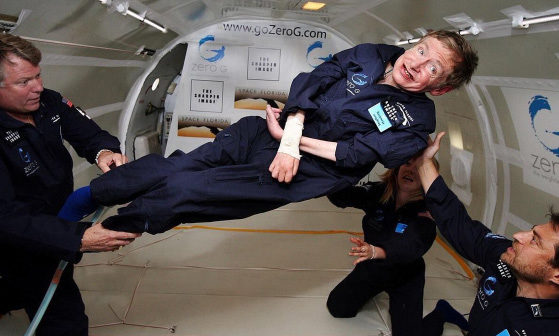On March 14, the stars themselves seemed to dim as the world reeled from the tragic news that Stephen Hawking, renowned physicist, author and one of the most brilliant minds of the modern age, had died at the age of 76.
Hawking’s interest in theoretical physics began in 1959 when he commenced his university education at Oxford at the age of 17. During his three years there, Hawking resembled someone far different from the acclaimed scientist the world knows today. His study habits were unimpressive, and he took up the mantle of a typical, rambunctious college boy. However, he was able to obtain a first-class BA in natural science before continuing his education at Trinity Hall, Cambridge.
During his studies at Cambridge, Hawking was diagnosed with a slow progressing motor neuron disease, also known as amyotrophic lateral sclerosis (ALS) or Lou Gehrig’s disease, at the age of 21. At the initial time, however, this diagnosis did not impede him from completing his studies with a Ph.D. in applied mathematics and theoretical physics with a specialization in general relativity and cosmology.
Over the years, the disease cost him the use of both his body and his voice; movement was limited to just one hand which would ultimately play a key role in his communication. It wasn’t until 1986 that he received a computer program called the “Equalizer” that would enable him to speak flicking a switch that would allow him to choose from nearly 3,000 words or phrases. By 2005, Hawking lost the use of his hand and began to control his speaking device via the movements of his cheek muscles.
Prior to his diagnosis, Hawking began a romantic relationship with Jane Wilde. The two became engaged in 1964 which, as Hawking explained, “gave him something to live for.” Their marriage wasn’t without its complications; Hawking’s rapidly deteriorating health put most of the home and familial responsibilities on Wilde, giving Hawking more freedom to focus on his physics.
In the 1970s, Hawking collaborated alongside Roger Penrose on gravitational singularity theorems. His studies of the properties of black holes led to a major breakthrough in the realm of physics. He began to apply quantum theory, the laws of subatomic reality, to black holes. In doing so, Hawking discovered that black holes could indeed shrink, emitting both radiation and particles as they do so, and disappear over time. This discovery was coined “Hawking radiation,” and was detailed in his 1974 thesis “Black Hole Explosions?” The thesis was deemed one of the first great strides in the journey to finding a single theory of nature.
Soon after his successful research into black holes, Hawking began looking into the creation of the universe, questioning both the infamous “big bang theory” and the existence of God. Hawking postulated that there was no boundary to the universe, meaning that it had neither a beginning or an end. Hawking asserted that “If the universe has no boundaries but is self-contained… then God would not have had any freedom to choose how the universe began.” This was later detailed in his book “A Brief History of Time,” which was published in April 1988 and sold an estimated 9 million copies. A biopic film of the same name, directed by Errol Morris and produced by Steven Spielberg, was released in 1992.
After years of marital difficulties, Hawking and Wilde divorced in 1995. Years later, Wilde published a memoir detailing their marriage and its breakdown. Though it caused a media uproar, Hawking refused to comment on the matter. Years later, Hawking reconnected with his family which spurred Wilde to produce a second book in 2007 called “Traveling to Infinity: My Life with Stephen.” This happier memoir was later adapted into the 2014 film “The Theory of Everything,” which starred Eddie Redmayne in the role of Hawking.
Throughout the 90s and early 2000s, Hawking expanded his public profile while continuing his research and writings, all in an effort to bring science to a wider audience. He continued to travel the world, making frequent trips to the U.S. and other more exotic locals like Chile, South Africa and Spain. In 2002, Hawking made the list of the BBC’s Top 100 Britons in addition to receiving numerous awards, including the Presidential Medal of Freedom, the nation’s highest civilian honor. He made several cameo appearances in popular television series, published a series of children’s book with his daughter, Lucy, geared toward explaining theoretical physics to a new generation and became a shining role model for disabled people around the world. In 2017, Hawking was awarded an honorary doctorate from Imperial College London.
Stephen Hawking died peacefully in his home in Cambridge, England. On that day, the flag at Cambridge’s Gonville and Caius College flew at half-mast.
Those familiar with Hawking knew him to be an atheist. In 2011, in the pilot episode of his American television series “Curiosity,” Hawking stated the following:
“We are each free to believe what we want, and it is my view that the simplest explanation is there is no God. No one created the universe, and no one directs our fate. This leads me to a profound realization. There is probably no heaven, and no afterlife either. We have this one life to appreciate the grand design of the universe, and for that, I am extremely grateful.”
One can only wonder what truly awaits this brilliant mind beyond death. Stephen Hawking has finally become an intangible part of the vast universe that he studied so passionately.





